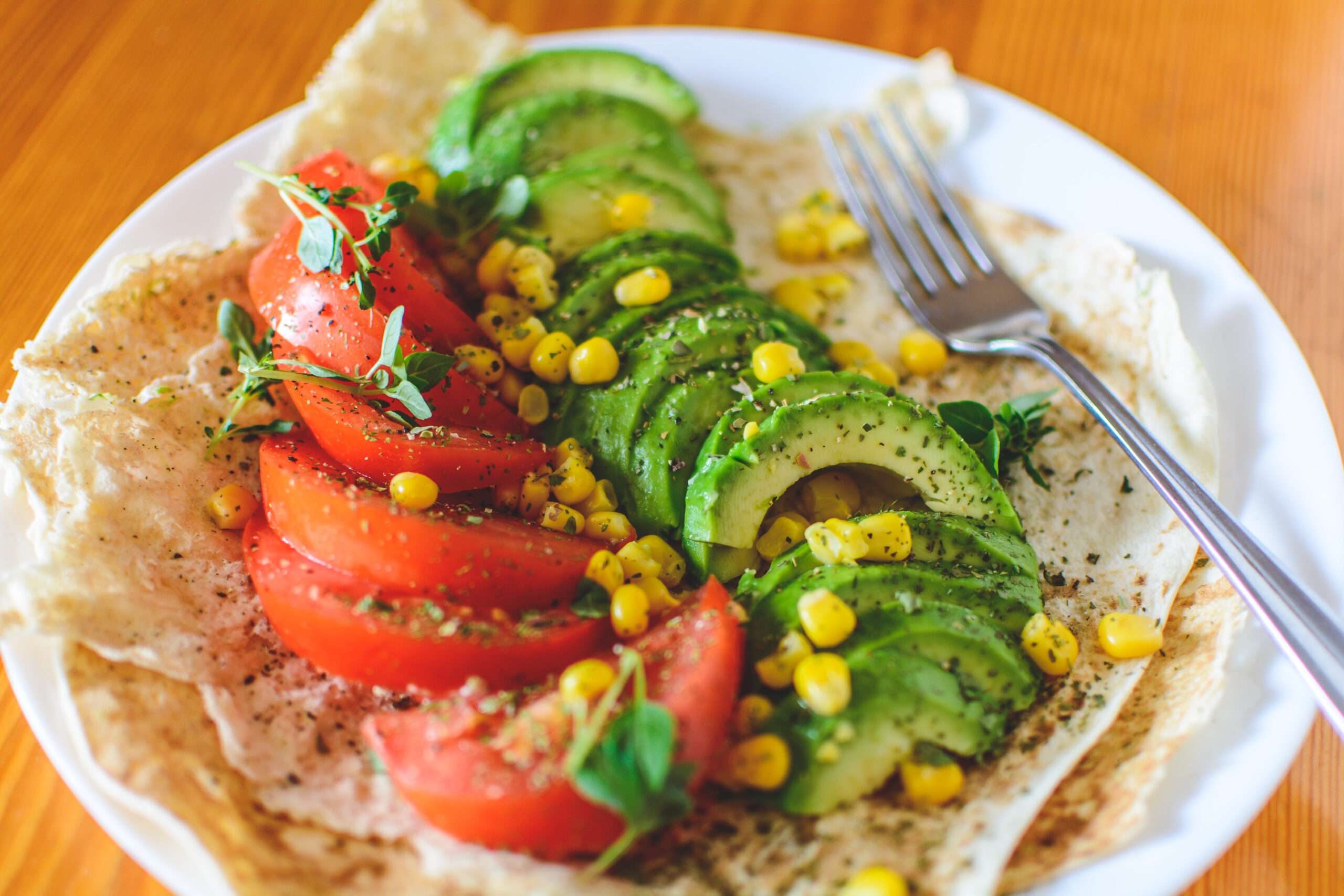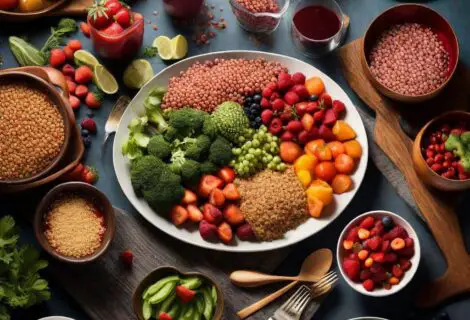Plant-Based Diet Tips for Beginners
Introduction
Embarking on a plant-based diet journey is an excellent choice for your health and a great way to contribute to a more sustainable and ethical world. You might feel overwhelmed by the countless resources and advice available as a beginner. But don’t worry, this article aims to provide you with practical plant-base diet tips and guidance to help you transition smoothly and enjoy the numerous benefits of a plant-based diet.
Keep It Simple and Start Slow
Transitioning to a plant-based diet doesn’t have to be complicated. Begin by making small changes in your daily meals, and gradually work your way up to a fully plant-based lifestyle.
Set Realistic Goals
Setting achievable and specific goals is crucial for staying motivated and focused. Start by assessing your current eating habits and identifying areas where you can make improvements. Consider setting short-term and long-term goals for your diet, such as increasing your fruit and vegetable intake or reducing your consumption of animal products. Make sure to monitor your progress regularly and celebrate your achievements, big or small.
Gradual Changes
Making gradual changes to your diet is a more sustainable approach than making drastic changes overnight. Start by incorporating more fruits and vegetables into your daily meals, and consider replacing one meal per day with a plant-based option. As you become more comfortable with these changes, gradually increase the number of plant-based meals you consume each week, eventually reaching a fully plant-based diet.
Educate Yourself
Before diving into a plant-based diet, it’s essential to understand the basics. Familiarize yourself with the different types of plant-based diets and their respective benefits. Knowledge is power, and being well-informed will help you make the best decisions for your health and well-being.
Types of Plant-Based Diets
There are various plant-based diets to choose from, each with its unique characteristics and benefits. Explore the different types to find the one that best aligns with your personal values and preferences.
Vegetarian
A vegetarian diet includes dairy products and eggs but excludes meat, poultry, and seafood. Vegetarians often choose this lifestyle for ethical, environmental, or health reasons. This diet is relatively easy to adopt, as many familiar dishes can be easily adapted to be vegetarian-friendly.
Vegan
A vegan diet excludes all animal products, including dairy, eggs, and honey. Vegans may choose this lifestyle for ethical, environmental, or health reasons. While this diet may require more planning and attention to nutrition, many people find that it helps them feel their best and supports their values.
Raw Vegan
A raw vegan diet consists of unprocessed plant foods that haven’t been heated above 118°F (48°C). This diet emphasizes fresh fruits, vegetables, nuts, seeds, and sprouted grains and legumes. Some people find that a raw vegan diet improves their energy levels and digestion, while others may find it too restrictive.
Health Benefits of a Plant-Based Diet
A plant-based diet is associated with numerous health benefits, including a lower risk of heart disease, diabetes, and certain cancers. Additionally, it can aid in improved digestion and weight management, as well as enhanced mental clarity and energy levels. By consuming a wide variety of plant-based foods, you can ensure you receive all the nutrients your body needs to function optimally.
Embrace Variety
A diverse diet not only keeps things interesting but also ensures you’re getting a wide range of nutrients.
Experiment with New Foods and Recipes
Exploring new foods and recipes is a fun and exciting way to diversify your plant-based diet. As you embark on your plant-based journey, challenge yourself to discover and try new ingredients and dishes that excite your taste buds and nourish your body.
Discover New Fruits and Vegetables
Venture out of your comfort zone by visiting your local farmers market or grocery store and picking up one new fruit or vegetable each week. Experiment with different ways to prepare and enjoy these new ingredients. Also, consider exploring international cuisine for inspiration, as many cultures have a rich history of plant-based dishes that are both delicious and nutritious.
Experiment with Plant-Based Protein Sources
Protein is an essential nutrient, and there are plenty of plant-based protein sources to choose from. Beans, lentils, and chickpeas are versatile and affordable options that can be easily incorporated into various dishes. Tofu, tempeh, and seitan are also excellent protein-rich alternatives to meat. Don’t forget about nuts and seeds, which can be added to salads, oatmeal, or eaten as a snack for an extra protein boost.
Find Your Go-To Meals
Having a list of your favorite plant-based recipes can help make meal planning and grocery shopping a breeze. Compile a collection of tried-and-true recipes that you enjoy, and rotate through your go-to meals to maintain variety. Make extra portions for leftovers or meal prep, so you always have a plant-based option on hand.
Unlocking the Potential of Ozempic for Weight Loss: A Comprehensive Guide
Plan Ahead
Planning is key to sticking to a plant-based diet, especially when you’re just starting.
Meal Prep
Setting aside time each week to plan your meals can help you stay on track with your plant-based diet. Create a shopping list based on your meal plan, and stick to it while shopping to avoid impulse purchases. Prepping ingredients or cooking meals in advance can save you time and energy on busy days, ensuring you always have a healthy plant-based meal at your fingertips.
Dining Out
Eating out while following a plant-based diet can be challenging, but it’s entirely possible with a little planning and research. Research restaurants in your area that offer plant-based options or are willing to accommodate your dietary needs. Don’t be afraid to ask for modifications or substitutions when ordering, and consider bringing a plant-based dish to potlucks or gatherings to ensure you have something to eat.
The China Study: Revolutionizing Our Understanding of Nutrition and Health
Seek Support
Surrounding yourself with like-minded individuals can help make your transition to a plant-based diet easier and more enjoyable.
Connect with Others
Join local plant-based groups or online communities where you can share your experiences, ask questions, and receive support from others who are on the same journey. Sharing your plant-based journey with friends and family can also help create a supportive environment and may even inspire them to make changes in their own lives. Attend plant-based cooking classes or workshops to learn new skills and connect with fellow plant-based enthusiasts.
Consult a Professional
If you’re unsure about specific aspects of your plant-based diet or need personalized guidance, consider speaking with a registered dietitian or nutritionist who specializes in plant-based nutrition. They can help you develop a balanced meal plan that meets your unique needs and goals. A health coach can also provide additional support and accountability to help you stay on track with your plant-based journey.
Conclusion
Adopting a plant-based diet can be a rewarding and fulfilling experience, both for your health and the environment. Remember, it’s essential to be patient with yourself as you navigate this new lifestyle. By keeping things simple, educating yourself, embracing variety, planning ahead, and seeking support, you’ll be well on your way to thriving on a plant-based diet. Enjoy the journey, and don’t forget to savor the delicious and nourishing foods that come along with it.
We hope you found this article helpful in starting your plant-based journey. If you have any suggestions, questions, or personal experiences you’d like to share, please leave a comment below. Your insights can help others in our community, and we’d love to hear from you. If you found this guide valuable, please share it with your friends and family to inspire more people to embrace a plant-based lifestyle.
Frequently Asked Questions (FAQ)
Q: How do I ensure I’m getting enough nutrients on a plant-based diet?
A: Eating a wide variety of fruits, vegetables, grains, legumes, nuts, and seeds will help ensure you get all the essential nutrients. Consult a registered dietitian or nutritionist for personalized guidance.
Q: Can I still eat processed foods on a plant-based diet?
A: While it’s best to focus on whole, unprocessed foods, some processed plant-based options can be included in moderation. Always read labels and choose products with minimal added sugars, salts, and unhealthy fats.
Q: Is it more expensive to eat a plant-based diet?
A: A plant-based diet can be budget-friendly if you prioritize affordable staples like grains, legumes, and in-season fruits and vegetables. Planning and cooking meals at home can also help reduce costs.
Helpful Resources
- Forks Over Knives – Offers plant-based recipes, meal plans, and expert advice.
- Nutritionfacts.org – Provides evidence-based nutrition information and resources.
- Minimalist Baker – Features simple and delicious plant-based recipes.
- Plant-Powered Kitchen – Offers wholesome, family-friendly plant-based recipes and tips.













